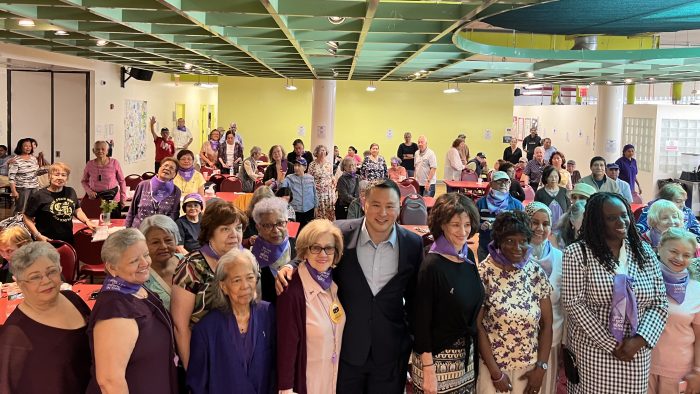
Photo courtesy of NYC Department for the Aging
June 11, 2024 By Czarinna Andres
Over 200 New Yorkers gathered in Sunnyside to support older adults and advocate for an end to elder abuse as part of the World Elder Abuse Awareness Day (WEAAD) event on Monday, June 10.
Organized by the NYC Department for the Aging (DFTA) in partnership with Sunnyside Community Services (SCS), the day’s activities began with a community march down Queens Boulevard to raise awareness about the significant issue of elder abuse and express solidarity with its survivors.
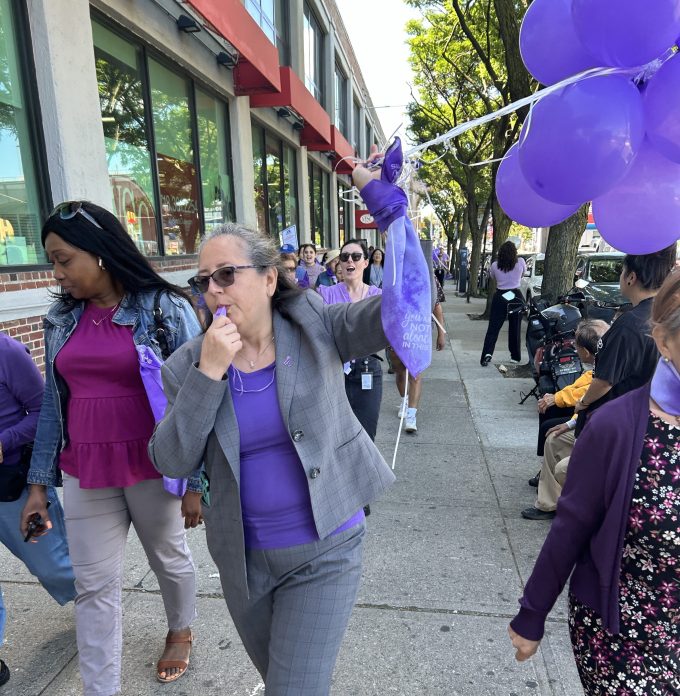
SCS team members march down Queens Blvd. (Photo courtesy of NYC DFTA)
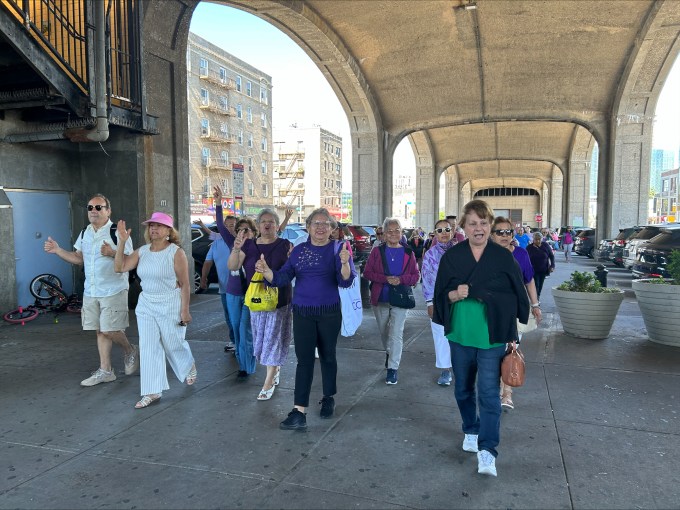
Participants march down Queens Blvd. (Photo courtesy of NYC DFTA)
The march was followed by a support and resource fair at SCS, located at 43-31 39th St., providing crucial information and resources to help prevent abuse, neglect and exploitation of the elderly.
Assemblymember Ron Kim, Chair of the Assembly Committee on Aging, was one of the speakers, alongside New York City’s Commissioner on Aging, Lorraine Cortés-Vázquez, and the Chair of the Senate Committee on Aging, Cordell Cleare.
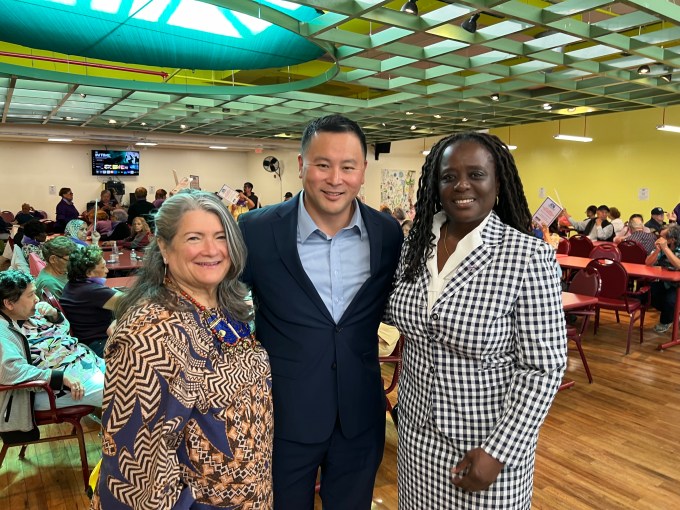
(Left to right) New York City’s Commissioner on Aging Lorraine Cortes-Vazquez, AM Ron Kim, and Chair of the Senate Committee on Aging Cordell Cleare (Photo courtesy of NYC DFTA)
“Elder crime can mean many different things: emotional abuse, neglect, physical abuse and sexual abuse to name a few. But the most common crimes perpetrated against older adults is rampant fraud and financial exploitation,” Kim stated during his speech. “We’re constantly working to raise awareness, collaborate with law enforcement and educate our communities on protecting their loved ones from predatory schemes.”
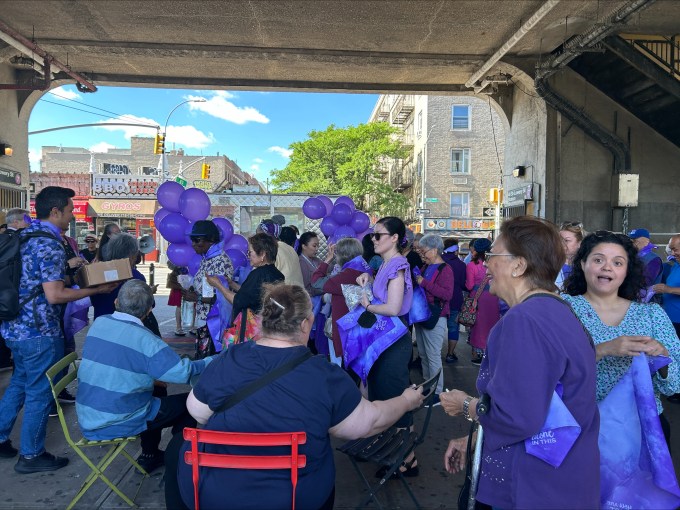
Attendees gathered at the 40th St. station along Queens Blvd. (Photo courtesy of NYC DFTA)
“Today’s event demonstrated the power of our community to provide critical support for survivors and raise awareness to prevent further abuse of older adults,” said Cortés-Vázquez. “The coalition of survivors, advocates, community leaders and supporters shined a light on elder abuse, offering victims critical resources to rebuild their lives.”
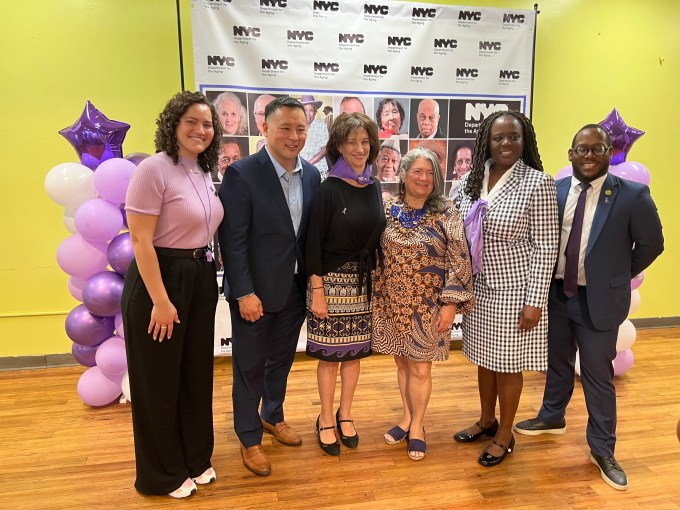
(Photo courtesy of NYC DFTA)
Judy Zangwill, Executive Director of Sunnyside Community Services, emphasized the importance of community awareness and education. “We’re proud to partner with NYC Aging in supporting those who have experienced elder fraud. Today’s event, and others like it, play a vital role in educating the public about elder abuse and providing them with the necessary tools and information to combat it,” Zangwill remarked.
The event is part of a series of NYC Aging-sponsored activities aimed at raising awareness about elder abuse. These include lighting up City Hall and other municipal buildings in purple on June 15, the official World Elder Abuse Awareness Day.
One Comment

they all marched about a block before getting out of breath and having to sit. then they walked one block back to the senior center for a nap.